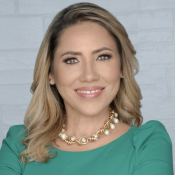ASQ & ASQ: SE - A New Perspective
Developmental Screening
Details
This educational workshop offers a new perspective on the use of the Ages and Stages Questionnaires (ASQ) and the Ages and Stages Questionnaires: Social-Emotional (ASQ-SE) that goes beyond the simple rating of its different components. The main purpose is to highlight the potential of this questionnaire as a psychoeducational activity, taking into account cultural diversity, hierarchies within the family system, and previous experiences of each family, among other things.
Session 1: ASQ Topics
- Purpose and benefits of the ASQ questionnaire
- Characteristics and scoring of the ASQ questionnaire
- How to talk and involve the family during the administration of the ASQ
- Interpretation and communication of the results
- Cultural adaptation of the questions
- Follow-up and referrals
Session 2: ASQ-SE Topics
- Purpose and benefits of the ASQ:SE questionnaire
- Characteristics and scoring of the ASQ:SE questionnaire
- How to talk and involve the family during the administration of the ASQ:SE. Interpretation and communication of results
- Cultural adaptation of questions
- Follow-up and referrals
The ASQ & ASQ-SE: A New Perspective educational workshop provides its participants with a broader view on the use of these questionnaires through case analysis, videos, and visual information that includes the following considerations:
- Biological and Health Factors
- The seven areas of behavior included in the ASQ:SE-2
- Home atmosphere
- Stress and trauma
- Transactional Theory of Development
- Developmental History
- Family and cultural context
This workshop offers tools that enrich the knowledge of participants and raises awareness about the cultural and family factors that impact the different areas of child development. In addition, it aims to effectively identify developmental problems. The workshop is aimed at educators, social workers, and child care workers.
This educational workshop offers a new perspective on the use of the Ages and Stages Questionnaires (ASQ) and the Ages and Stages Questionnaires: Social-Emotional (ASQ-SE) that goes beyond the simple rating of its different components. The main purpose is to highlight the potential of this questionnaire as a psychoeducational activity, taking into account cultural diversity, hierarchies within the family system, and previous experiences of each family, among other things.
Session 1: ASQ Topics
- Purpose and benefits of the ASQ questionnaire
- Characteristics and scoring of the ASQ questionnaire
- How to talk and involve the family during the administration of the ASQ
- Interpretation and communication of the results
- Cultural adaptation of the questions
- Follow-up and referrals
Session 2: ASQ-SE Topics
- Purpose and benefits of the ASQ:SE questionnaire
- Characteristics and scoring of the ASQ:SE questionnaire
- How to talk and involve the family during the administration of the ASQ:SE. Interpretation and communication of results
- Cultural adaptation of questions
- Follow-up and referrals
The ASQ & ASQ-SE: A New Perspective educational workshop provides its participants with a broader view on the use of these questionnaires through case analysis, videos, and visual information that includes the following considerations:
- Biological and Health Factors
- The seven areas of behavior included in the ASQ:SE-2
- Home atmosphere
- Stress and trauma
- Transactional Theory of Development
- Developmental History
- Family and cultural context
This workshop offers tools that enrich the knowledge of participants and raises awareness about the cultural and family factors that impact the different areas of child development. In addition, it aims to effectively identify developmental problems. The workshop is aimed at educators, social workers, and child care workers.
Facilitators

Dr. Yamila Lezcano
PhD, LMHC

